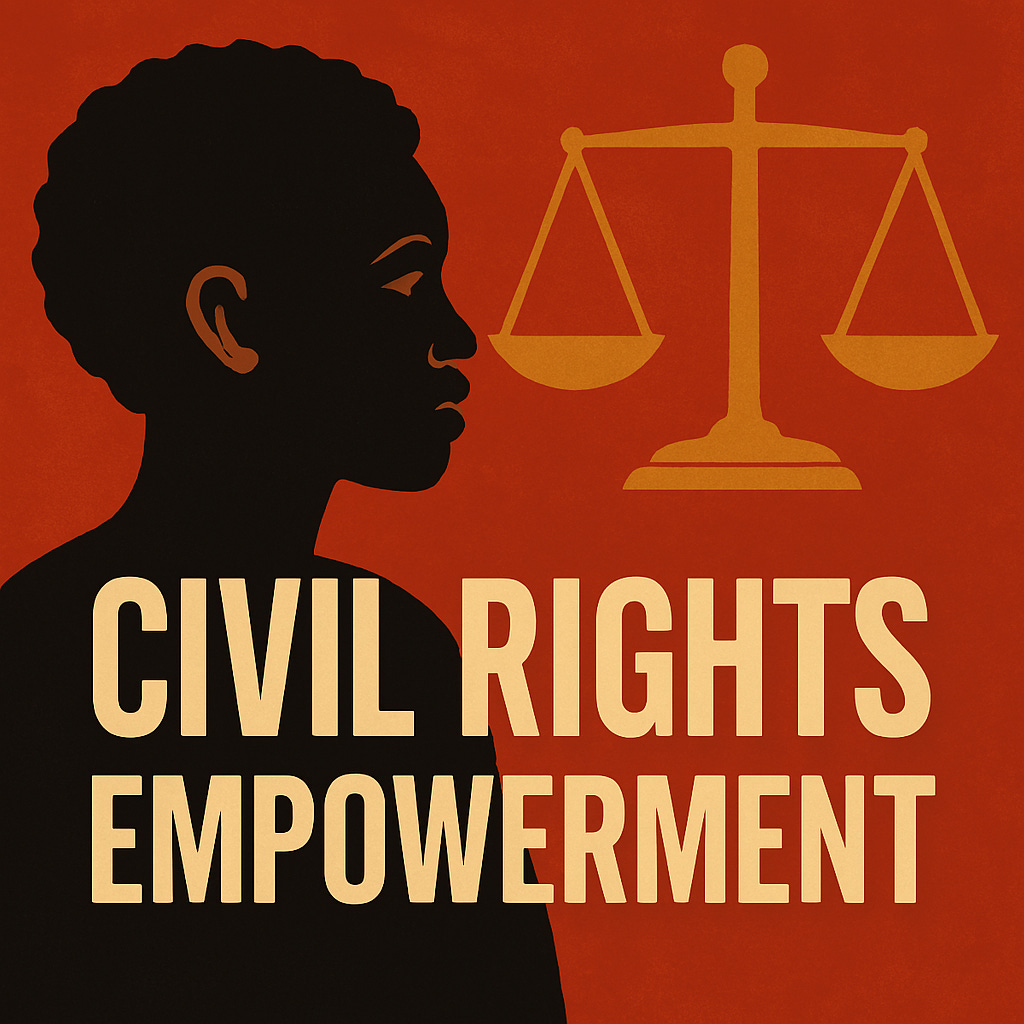🟧Black Civil Rights & Empowerment
A ranked guide to advocacy groups advancing racial justice, civil rights, and empowerment for Black Americans.
These advocacy groups—both national and Washington-based—are leading efforts to advance racial justice, civil rights, and equity for Black people and African Americans.
Each organization provides various resources, including educational materials, community programs, and opportunities for activism. Their websites often serve as platforms for mobilization, information sharing, and advocacy efforts.
NAACP (National Association for the Advancement of Colored People)
NNACP Alaska Oregon Washington
One of the oldest and most influential civil rights organizations in the U.S., the NAACP fights racial discrimination and promotes political, educational, social, and economic equality. It has active local branches, including several in Washington state.
The largest online racial justice organization in the country, Color of Change leads campaigns against corporate injustice, political disenfranchisement, media bias, and more—empowering millions through digital advocacy.
Urban League of Metropolitan Seattle
This local Urban League chapter addresses disparities in education, housing, employment, and civic participation in Seattle’s Black community through training, mentorship, and advocacy programs.
American Civil Liberties Union (ACLU)
While the ACLU focuses on protecting the constitutional rights of all Americans, it is deeply involved in racial justice, criminal justice reform, and voting rights. Its Washington affiliate is especially active in state-level advocacy.
Black Lives Matter, Global Network Foundation
A decentralized, grassroots movement working to eliminate white supremacy and build local power to combat violence against Black communities. Local chapters across the U.S., promote justice and healing.
This historic organization supports economic empowerment through programs in job training, housing, health care, and education. It also supports affiliates like the Urban League chapters in Seattle and Tacoma.
Africatown Community Land Trust, Seattle
Focused on land ownership and cultural preservation, Africatown works to empower Seattle’s Black residents through community development and anti-displacement efforts in the Central District.
A policy and legal advocacy organization that partners with grassroots movements to support voting rights, police accountability, educational equity, and systemic change.
A statewide coalition advancing Black liberation through abolitionist organizing, policy advocacy, and community empowerment. Offers toolkits, campaigns, and resources to support grassroots action.
National Black Justice Coalition (NBJC)
A national civil rights organization dedicated to the empowerment of Black LGBTQ+ people, addressing intersectional issues of race, gender, and sexuality through advocacy, research, and policy.
Focused on increasing voter registration, civic engagement, and political power in Black communities, particularly in marginalized and rural areas.
This local chapter focuses on community development, health equity, youth leadership, and social justice for Tacoma’s Black population.
Black Women’s Health Imperative (BWHI)
The only national organization solely focused on improving the health and wellness of Black women and girls through advocacy, education, and leadership development.
Rooted in Seattle’s Central District, Byrd Barr Place provides essential services like housing and energy assistance while advocating for racial and economic justice.
Equal Justice Initiative (EJI)
A legal advocacy group working to end mass incarceration, racial injustice, and excessive punishment. EJI also leads public education efforts, including the Legacy Museum and the National Memorial for Peace and Justice.
✳️ Other Noteworthy Organizations
These organizations are historically significant or emerging voices in Black advocacy.
Southern Christian Leadership Conference (SCLC)
Founded by Dr. Martin Luther King Jr., the SCLC is committed to social justice through nonviolent activism. It continues to promote community engagement and spiritual leadership.
Association for the Study of African American Life and History (ASALH)
Founded by Dr. Carter G. Woodson, ASALH promotes research, education, and understanding of African American history and culture. It leads Black History Month celebrations nationwide.
Black Youth Project 100 (BYP100)
A member-based organization of Black youth activists creating justice and freedom for all Black people through political education, advocacy, and organizing.
Reviving Dr. King’s final campaign, this national movement addresses poverty, racism, environmental degradation, and militarism through grassroots action and moral advocacy.
Southerners on New Ground (SONG)
A regional LGBTQ+ and racial justice organization rooted in the South. Focuses on intersectional community organizing, abolition, and liberation.
📝 Top Issues in Black Advocacy
Racial Justice and Police Reform: Advocating for accountability in policing, ending racial profiling, demilitarization, and investment in community safety alternatives.
Voting Rights: Fighting voter suppression, expanding access to the ballot, and promoting full representation through fair districting and registration protections.
Economic Equity: Working to close the racial wealth gap through fair wages, access to capital, affordable housing, and inclusive economic policies.
Education Access and Quality: Addressing disparities in school funding, curriculum representation, and access to quality public education and higher learning opportunities.
Criminal Justice Reform: Reducing mass incarceration, ending cash bail and mandatory minimums, promoting restorative justice, and reforming court systems.
Health Care Disparities: Ensuring equitable access to affordable, culturally competent health care and addressing racial disparities in outcomes and treatment.
Housing Inequality: Challenging discriminatory housing practices, promoting homeownership, and ensuring access to affordable and safe housing.
Environmental Justice: Protecting Black communities from environmental hazards and ensuring fair access to clean air, water, and green spaces.
Mental Health Awareness: Breaking stigma and increasing access to culturally competent mental health resources, especially for Black youth and trauma-impacted communities.
Cultural Representation: Promoting accurate and meaningful representation of Black people in media, arts, education, and public life.



This is from Scroll XVI of my project The Hidden Clinic. I wrote it as a prayer—not a statement. Not for applause. Just rhythm for witness. https://thehiddenclinic.substack.com/p/to-the-ones-who-were-set-on-fire